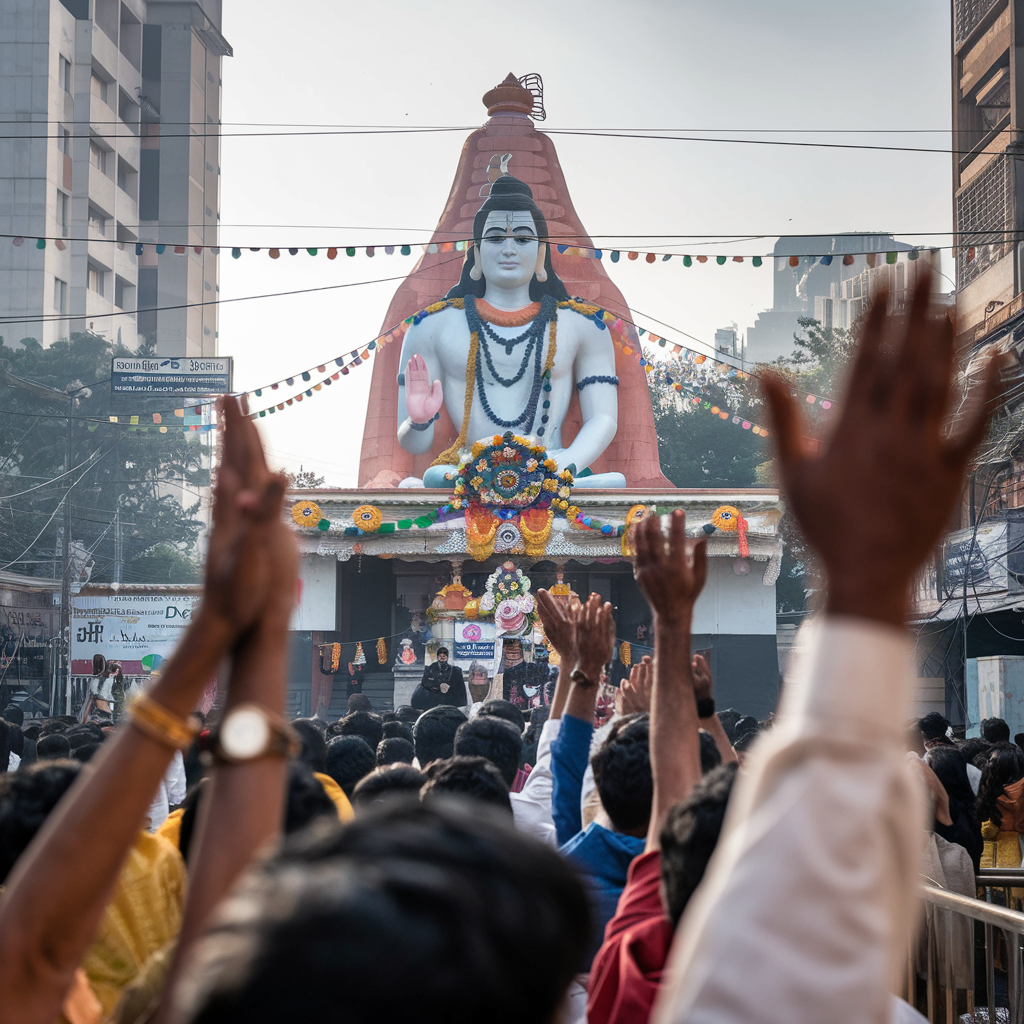Mahashivratri, one of the most revered festivals in Hinduism, is dedicated to Lord Shiva, the supreme deity of destruction and transformation. It is a night of spiritual awakening, deep devotion, and the pursuit of divine blessings. In 2025, Mahashivratri will be observed on Friday, February 28. Devotees across India and various parts of the world will engage in prayers, fasting, and rituals to honor Lord Shiva on this auspicious occasion.

Significance of Mahashivratri
Mahashivratri, meaning “The Great Night of Shiva,” holds immense spiritual significance. According to Hindu mythology, this is the night when Lord Shiva performed the divine Tandava, the cosmic dance of creation, preservation, and destruction. It is also believed to be the day when Shiva and Goddess Parvati united in holy matrimony.
For devotees, Mahashivratri is an opportunity to seek the blessings of Lord Shiva for inner peace, prosperity, and salvation. Observing fasts and chanting “Om Namah Shivaya” is believed to bring spiritual growth and remove negativity from one’s life.
Rituals and Celebrations
Mahashivratri is celebrated with great devotion and enthusiasm in temples, homes, and pilgrimage sites. Some of the major rituals observed on this day include:
- Fasting (Vrat): Many devotees observe a strict fast, consuming only fruits, milk, and water, while some follow a “nirjala” fast, refraining from both food and water.
- Abhishekam (Ritual Bath of Shivlinga): Devotees perform the sacred bathing of the Shivlinga using milk, honey, curd, ghee, water, and bael leaves to seek blessings.
- Night-long Vigil (Jagran): Temples remain open throughout the night, and devotees chant Shiva mantras, listen to bhajans, and meditate to stay awake in devotion to Lord Shiva.
- Offering Bael Leaves and Flowers: Bael leaves hold special significance as they are believed to please Lord Shiva. Devotees offer flowers, sweets, and sacred items at Shiva temples.
- Puja and Aarti: Special prayers and aartis are conducted in temples, especially at revered Shiva temples like Kashi Vishwanath (Varanasi), Kedarnath (Uttarakhand), Mahakaleshwar (Ujjain), and Somnath (Gujarat).
Mahashivratri 2025 at Famous Shiva Temples
Temples dedicated to Lord Shiva witness grand celebrations during Mahashivratri. Some of the most prominent places where grand festivities take place include:
- Kashi Vishwanath Temple, Varanasi – A major pilgrimage site, known for its divine aarti and rituals.
- Mahakaleshwar Temple, Ujjain – Celebrated with the famous Bhasma Aarti, a unique ritual performed with sacred ash.
- Somnath Temple, Gujarat – Hosts grand Shiva pujas and special darshans.
- Kedarnath Temple, Uttarakhand – Though closed in February, devotees still offer prayers and seek blessings.
Spiritual Importance of Mahashivratri
Mahashivratri is not only a religious festival but also a night of self-reflection and spiritual enlightenment. Meditating on this night is believed to lead to self-realization and liberation (moksha). It is an occasion to surrender to Lord Shiva and embrace the cycle of destruction and renewal in one’s life.
Conclusion
Mahashivratri 2025 is a sacred occasion that invites devotees to deepen their connection with Lord Shiva through fasting, prayers, and devotion. It is a time to seek blessings for strength, wisdom, and transformation. Whether at home or in a temple, celebrating this divine night with a pure heart can bring immense spiritual and worldly benefits.
May Lord Shiva bless all with happiness, peace, and prosperity on this Mahashivratri!